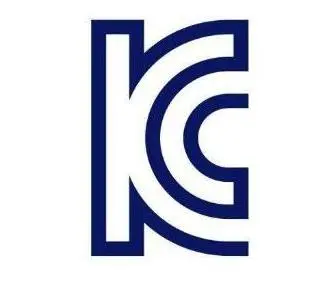
What is KC EMC Certification?
Most information, communication, and telecommunications equipment sold in South Korea must obtain KC emc certificationto demonstrate that the product complies with electromagnetic compatibility (EMC) requirements and is safe for users.
For products using radio frequency (RF)technologies—such as Wi-Fi, Bluetooth, RFID, or other wireless communication technologies—kc emc certification is also requiRED to enter the South Korean market.
The Radio Research Agency (RRA)and the Korea Communications Commission (KCC)are the designated authorities responsible for KC electromagnetic compatibility certification.
In addition to KC EMC certification, some products may also require KC Safety certification.

Main Categories Covered by KC EMC Certification
1. Non-wireless products
Products without RF technologies but subject to electromagnetic compatibility requirements, such as:
a. Household appliances
b. Lighting systems
c. Other products operating above 9 kHz
2. Wireless and RF-based products
Products using technologies like:
a. Wi-Fi
b. Bluetooth
c. Mobile communication
d. RFID
Types of Certification
a. KC EMC Certification: Focuses on Electromagnetic Compatibility (EMC).
b. KC Safety Certification: Focuses on Electrical Safety (LVD).
c. Wireless Devices: Require additional kcc certificationfor the RF modULe.
Certification Process Overview
Like other regulated products, those requiring KC EMC certification must undergo emc testing. As part of the process, two separate test reportsare typically required:
1. Preparation of Technical Documents
a. Product specification sheet (including circuit diagrams, PCB layout, key components list)
b. Korean-language label and user manual
c. kc certification for key components (e.g., power supply, battery)
d. EMC test report (based on KN standards, e.g., KN 32/35)
e. Safety test report (based on IEC standards + Korean deviations, e.g., KN 60335)
2. Product Testing
EMC Tests:
1. Conducted Emission
2. Radiated Emission
3. Immunity (interference resistance)
Safety Tests:
1. Dielectric strength
2. Leakage current
3. Temperature rise
4. Mechanical strength
Testing Standards:
1. Household appliances: KN 60335 series
2. IT equipment: KN 60950 or KN 62368
3. Lighting: KN 60598
Testing and Certification
Generally, the product must be tested at a designated testing laboratory.
JJR Laboratory in Chinais an officially KC-authorized testing lab.
The certification process includes:
1. Submitting an application to the relevant authority
2. Providing test samples
3. Receiving test reports after passing the tests
4. RRA issues the final certification
Once certified, the manufacturer must label the product correctly, including the KC mark and a specific certification code.
The certification codemust follow the regulatory format and indicates:
1. Type of certification (EMC, safety, wireless, or telecom)
2. Role of the applicant (manufacturer, importer, or seller)
3. Product model information (up to 14 characters)
Applicant Requirements
While the manufactureris typically the applicant for KC certification, KC EMC certification allows non-manufacturersto act as the applicant.
In practice, this role is often taken by the Korean importer or distributor.
Although this simplifies the process for manufacturers, it creates a lock-in effectfor importers.
To change the importer, the original importer’s approval is required to update the certificate.
Otherwise, the product must undergo retesting and re-certification.
FAQs
Q: Does KC certification accept CB reports?
A:Partially. Supplementary testing for Korean deviations (e.g., EMC and local safety standards) is required.
Q: Is a factory audit required for KC certification?
A:Only for mandatory certification products. No audit is required for self-regulated confirmation items.
Q: What is the difference between KC and KCC?
A:
1. KCcovers safety and EMCcompliance.
2. KCCfocuses on wireless and telecom devices(e.g., Wi-Fi, Bluetooth).
Email:hello@jjrlab.com
Write your message here and send it to us
 IEC 62471 Photobiological Safety of Lamps and Lamp
IEC 62471 Photobiological Safety of Lamps and Lamp
 New European Toy Standard EN 71-1:2026
New European Toy Standard EN 71-1:2026
 EN71 Series Standards Compliance February 13, 2026
EN71 Series Standards Compliance February 13, 2026
 European Toy Safety Standard EN 71-20:2025
European Toy Safety Standard EN 71-20:2025
 EN 18031 Certification for Connected Devices on Am
EN 18031 Certification for Connected Devices on Am
 Compliance Guide for Portable Batteries on Amazon
Compliance Guide for Portable Batteries on Amazon
 2026 EU SVHC Candidate List (253 Substances)
2026 EU SVHC Candidate List (253 Substances)
 LFGB Certification Cost and Timeline Guide
LFGB Certification Cost and Timeline Guide
Leave us a message
24-hour online customer service at any time to respond, so that you worry!




